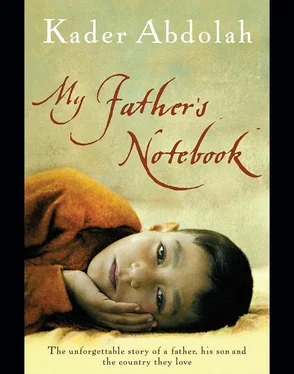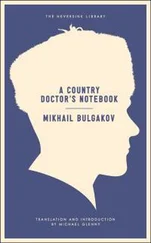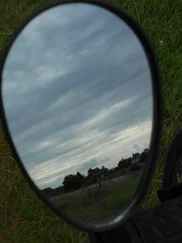Now that the stencil machine had been safely stowed in the boot of my car, I drove off. How would I be able to get rid of the thing in a busy city like Tehran?
Actually, considering the danger I was in, I shouldn’t have been driving my own car.
I wanted to do everything right. Not like a frightened rabbit, but like a freedom fighter who’s reached the end of the road. If I left the stencil machine on the pavement and tiptoed away, I’d not only feel like a coward, but the machine would no doubt wind up in the hands of the secret police. I wanted to avoid that for two reasons. One, they would dust it for fingerprints, and two, they would conclude that we’d abandoned it because we were scared — so scared that we were dumping everything and running away in panic.
I was of two minds. Deep down, I rejoiced at the prospect of being liberated from the stencil machine, but at the same time I didn’t want to let it go. It seemed as if my life were inextricably bound up with the machine. As long as it was in the boot of my car, I had an anchor. The moment it was gone, however, I would be adrift — a nobody, superfluous.
No, I refused to throw it away. Someone might need it later on if the party ever decided to start printing again. Why not take it to the salvage yard where I found it?
I’d have to hurry. It was five-thirty, and I didn’t know what time it closed.
On the way there, I thought about what I would say. Maybe I wouldn’t say anything, just drag the machine back to the shed where I’d found it. I decided to play it by ear.
It took me an hour to reach the salvage yard. A light was still on in the office. I parked the car and got out to see if the gate was locked. It was.
“Is anyone there?” I shouted. No answer.
I looked to see if there was a back entrance by the shed, but there wasn’t. My only alternative would be to leave the stencil machine at the gate and drive off.
Just then the office light went out. I waited. A figure emerged from behind the wrecked cars, but I couldn’t tell if it was a guard or an office worker. As he came closer, I could see that it was an old man in a cap — clearly the guard.
“Good evening,” I called.
“Good evening,” he said with an Afghan accent. No doubt one of the thousands of Afghan refugees who had fled to our country.
“Are you looking for someone?”
“No. A couple of months ago I took a stencil machine out of the shed. I don’t suppose you know anything about that?”
“No.”
“It doesn’t matter. I don’t need it any more, so I brought it back, but the gate was locked. I’ve got it out in the car. I live far away, so I’d rather not make another trip. I’d appreciate it if you’d let me put it in the shed.”
He thought it over.
“Who let you have the machine?”
“A friend of mine arranged it. He said I could just take it out of the shed. It’s an old machine that should actually be scrapped. That’s why I’ve brought it back.”
“OK, go and get it. But you can’t take it to the shed — it’s too dark back there. Just put it down here. I’ll bring it to the shed myself tomorrow morning.”
“Thank you.”
I hurriedly opened the trunk, hauled out the stencil machine and lowered it to the ground. Then I dragged it in its blanket over to the gate and left it just inside.
“More coffee?” the café owner asked.
“Yes, thanks. It’s good coffee.”
“Are you keeping a journal?”
“No. Yes. I mean, I suppose it’s a kind of journal.”
“You write fast. Have you lived in Holland for long?”
“I may write fast, but I make lots of mistakes. When I go back home, I’ll have to go through it all again and correct it.”
“Your Dutch is good. Where do you come from?”
“Iran. Persia.”
“No kidding! Look, I’ve got Persian carpets on my tables. Not real ones, of course, but nice all the same. They brighten up the place, make it look smarter. Well, I won’t disturb you any more. I expect you’re staying at the campground.”
“Yes, I’m here with my family.”
The fog had lifted. The villagers were walking down the main street in festive clothes. A group of older men, about my father’s age, came into the café. They greeted the owner, then started talking loudly to each other in dialect. It made the café a lot more cheerful.
The owner brought me a fresh cup of coffee and said, “I suppose you won’t be able to write any more with all the—”
“No problem. I’ll manage.”
Now that I’d disposed of the stencil machine, my instructions were to park the car somewhere and abandon it.
You agree to follow instructions like these without realising you might actually have to carry them out one day.
I had to do as I was told. Otherwise I could endanger the lives of others. I knew a lot about the party and I knew where a number of my comrades lived. If I were arrested, the police would drag the information out of me, bit by bit. This was no time for hesitation. A deal was a deal. I had to dump the car.
Without a car, though, how was I going to get around? And what were my next instructions?
As I drove through the darkness, I had a brilliant idea: I could park the car at my father’s house. No, that was no good. It might sit there for months. What about behind the shop? There was a tiny plot of land where nobody ever went. It would be perfectly normal for a car to be parked there for a long time. Spare parts were so hard to find during the war that people often left their broken-down cars outside their homes.
I turned the car around and took the road to Senejan. I’d arrive in the middle of the night, which was good, because my father would be at home and the streets would be deserted.
• • •
It was almost quarter to one when I reached the city. I drove to my old neighbourhood. I saw a dog sniffing at a dustbin, but when he heard the car, he crept back into the darkness. I drove past my parents’ house. The curtains were drawn as usual, but the lights were on. Were they still awake? Tina’s silhouette suddenly moved across the curtains. She’s up, I thought. What’s going on? I felt a sudden urge to stop, but the house was off-limits. Whatever was going on behind the curtains was no longer my concern. And yet, I thought, it ought to be possible to drop in for a moment, say hello and leave.
I parked the car and was just about to get out when I saw my father’s silhouette on the curtains. He threw up his hands and disappeared.
I had no right to know what was happening in their lives. I’d better go — I had come here for another reason. I started the car and drove to my father’s shop.
I was used to seeing a light on in the window. This time it was dark. I drove slowly past the shop, then turned right at the corner so I could park behind it. Because I didn’t want to wake the neighbours, I stopped, switched off the engine, got out and tried to push the car the rest of the way. It wasn’t easy, but I finally managed to push it under an old tree. Suddenly there was a flicker of light in the window of the lean-to where we’d once hid Jamileh.
I thought I must be mistaken, that my imagination was playing tricks on me.
I took out the vehicle registration papers and locked the car doors. What should I do with the papers and the key? I probably wouldn’t need them for a long time. Maybe never. I went over to the lean-to so I could slide the key and the papers through a crack in the window frame.
Tomorrow, when my father saw the car behind the shop, he’d realise what had happened. Eventually he’d also find the key and the vehicle registration papers in his lean-to.
The papers slipped easily through the crack, but the key wouldn’t fit. Since the window frame was rotten, I gouged out a hole with the key, then pushed it through. As the key fell to the ground, I caught a glimpse of a shadowy figure inside. “Don’t worry,” I whispered quickly, to calm whoever it was. “It’s OK. Everything’s all right.”
Читать дальше












